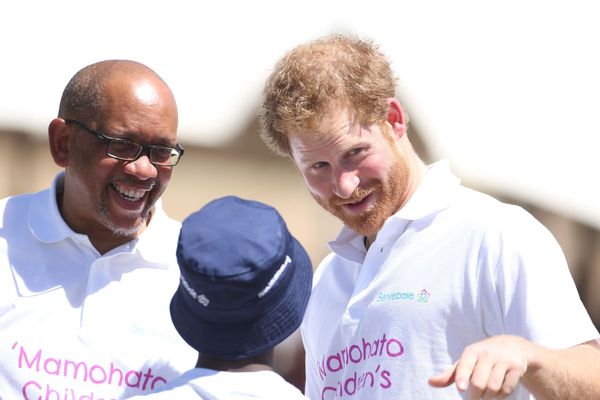Bob Cousy worked hard. "I was also lucky," said Cousy, who is widely hailed as the first great point guard of the National Basketball Association.
Cousy's luckiest break occurred when he fell out of a tree. He was 13 years old. His mashed right arm ended up in a cast. But the right-handed boy pursued his favorite activities as well as he could by trying to ignore his new impediment. That meant playing basketball left-handed for weeks. "I became ambidextrous," said Cousy, 96.
That's putting it modestly. Cousy's ballhandling skills — with both hands — kept improving and became the foundation for a celebrated career. Robert "Bob" Cousy — beloved by millions of fans as simply Cooz — went on to transform the then-tortoise-paced, two-dimensional, flat-footed game of basketball into the fast-break game we know today. He did it with no-look passes, behind-the-back dribbles and go-go-go play-calling.
Add Magic To Your Game Like Bob Cousy
Moving a basketball with a magician's sleight of hand, Cousy became acclaimed as the "Houdini of the Hardwood."
Traits that thrill today's fans were popularized, if not outright introduced, by Cousy. Yet Cooz was so far ahead of his time that coaches in his day initially dismissed him as a counterproductive showboat.
"In the '40s and '50s, players were expected to walk the ball up-court," Cousy told Investor's Business Daily from his longtime home in Worcester, Mass., about 50 miles west of Boston. "Some coaches would not let tall players take hook shots. There were all sorts of archaic rules. What I was doing was revolutionary. Hey, I was a little bit of a showoff. But now every 12-year-old can do it with more panache in every schoolyard. And that's good!"
Stand Out From The Rest Like Cousy
Cousy played for the Boston Celtics from 1950 to 1963, distinguishing himself as a nonpareil playmaking guard. He led the NBA in assists each year from 1953 through 1960. Cousy was the NBA's Most Valuable Player in 1957. He won All-Star Game MVP honors in 1954 and 1957. Playing 14 seasons, Cousy was named to the All-Star team 13 times. Cousy led the Celtics to six NBA titles.
He was inducted into the Naismith Memorial Basketball Hall of Fame in 1971. Later, he became a coach and television commentator.
Gain Strength From Adversity
Yet none of his achievements came easily. He had to overcome that broken arm, a boyhood amid the Great Depression, a speech impediment, a household where his parents bickered often, and an early reputation as self-centered showboat. "Opportunities to become a winner did not crop up every day," Cousy said. "I had to learn to jump on them. Fast!"
Born in 1928, Cousy grew up poor on Manhattan's East Side in the depths of the Great Depression. "It was a ghetto experience," Cousy said. "The rats and cockroaches were bigger than the tenants." Cousy's parents were poor French immigrants, and Cousy spoke only French until he was five. He also had a speech impediment that turned his R's into L's.
Cousy's father was a cabdriver. He often worked seven days a week and several jobs. By the time Cousy was 12, his father had saved $500, enough to move to the better but also modest St. Albans neighborhood of Queens in the summer of 1939.
Outdoors, Cousy and his buddies played stickball, stoop ball, boxball — and stole automobile hubcaps. "We didn't sell them," Cousy said. "It was just a hobby, a way to kill time."
Find Your Passion
Another lucky break: Local playground director Morty Arkin introduced Cousy to basketball. It was love at first dribble. Perpetual practice was also a retreat from Cousy's fractious household, where his France-born mother quarreled nonstop with his father, who had served in the World War I German army.
Excelling more and more on court, Cousy — the kid with the French accent — was soon playing in neighborhood leagues, then for the Andrew Jackson High school junior varsity. But even Cousy could not crack the varsity. The problem? "We had 3,000 boys in the school," Cousy said. "All of them went out for the team. But all they got a chance to do was shoot some layups in the tryouts. I got turned down for two years."
Then Cousy fell out of that tree. Cousy learned to dribble, shoot and pass left-handed. "It was my sophomore year," Cousy said. "My schoolyard team played the Andrew Jackson varsity one night. The coach (Lew Grummond) watched and came up to me after the game. He said, 'Hey, kid, you go to school around here? I need a leftie playmaker.'"
Stick To Your Edge
In 1946, Cousy earned a scholarship to the College of the Holy Cross, in Worcester. But old-school coach Alvin "Doggie" Julian, frowning at what he saw as hotdogging, often benched Cousy.
Still, even with limited playing time, freshman point guard Cousy helped Holy Cross cop the national title in the 1946-1947 season. In his senior year, Cousy was the Svengali behind Holy Cross's 26-game winning streak and a second-place finish in the National Invitation Tournament (NIT). In his time at Holy Cross, he earned the National Collegiate Athletic Association (NCAA) All-America honors three times.
Yet after his graduation, the NBA pros were also cool toward Cousy's flamboyant style. Blessed with the first pick in the 1950 NBA draft, the Boston Celtics instead chose 6-foot-11-inch center Charlie Share. Coach Arnold "Red" Auerbach dismissed Cousy as one of those "dime a dozen ... local yokels."
Know Your Worth Like Cousy
It was the Tri-Cities Blackhawks that drafted Cousy, but Cooz balked at the team's $6,000 salary offer, so Tri-Cities traded him to the Chicago Stags — which soon folded. Their players were distributed to other teams via a lottery. With teams drawing names on slips of paper from a hat, Boston landed Cooz.
Blessed with long arms, huge hands, powerful thighs and exceptional peripheral vision, Cousy quickly earned a reputation for crystal-ball passing and Gumby-limb dribbling.
Yet Cousy had to refine those skills. Like Holy Cross players before them, fellow Celtics resented looking like fools when unexpected Cousy passes hit them in places other than their hands. "I had to get Cousy to learn to fool the opposition without fooling his own team," Auerbach told Cousy biographer Al Hirschberg in 1953.
Support Your Industry
In the 1950s, largely white pro basketball was still a newborn novelty, lacking fans and fraught with failed franchises. "The league was a frail, mom-and-pop operation in those days," said Bob Ryan, the Boston Globe's now-retired longtime Celtics beat writer. "Several teams folded. If it weren't for Cousy, I don't know if there would be a Boston Celtics. Cousy was a significant drawing card. Auerbach was a genius. But don't overlook Cousy's role in keeping the Celtics afloat."
For all of his success, Cousy was no one-man band. He flourished on a team whose coach was the legendary tactician and talent judge Auerbach. Teammates included superstar center Bill Russell, arguably the greatest basketball player of all time; sharpshooting guard (and later NBA coach) Bill Sharman; Hall of Fame player-coach forward Tommy Heinsohn; and versatile "sixth man" (first player off the bench to replace a starting-five teammate) Frank Ramsey.
Support Your Teammates
Cousy's impact and concerns were not confined to the basketball court. Ryan said, "One of Cousy's proudest legacies was his staunch support of Black players when the league was not welcoming in many ways."
Cousy notched nearly 7,900 assists over 13 regular seasons and playoff games. But his greatest single assist occurred off-court. Cousy was founder of the NBA Players Association and its president for several years. In 1954 — when the league was still financially precarious — he wrote to a small number of fellow stars, whose notoriety he hoped would immunize them to retaliation by owners, soliciting their support for a union. With seven of eight voting yes, Cousy sought a meeting with the league commissioner, five-foot-two-inch tall Maurice Podoloff.
Initial talks were about things like limiting the number of exhibition games and meal money, not player salaries. The league did not budge on bigger-ticket items, including salaries and a pension plan, until years later, after Cousy retired.
Cousy, who got paid $9,000 in his first year and $35,000 in his final season, said, "When I see that (the Boston Celtics' All-Star forward) Jayson Tatum got $314 million (for a five-year contract extension in July 2024), I did a victory dance."
Bob Cousy's Keys
- Beloved as the first great point guard of the National Basketball Association and acclaimed as the founder of NBA Players Association.
- Overcame: A penchant for showboating.
- Lesson: "Opportunities to become a winner did not crop up every day. I had to learn to jump on them. Fast!"







